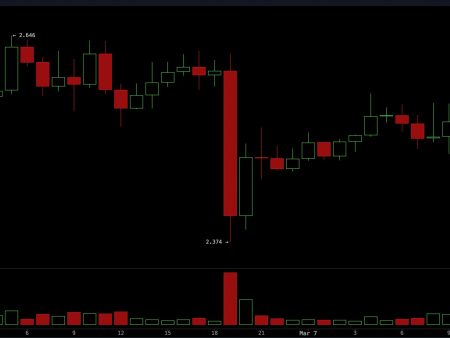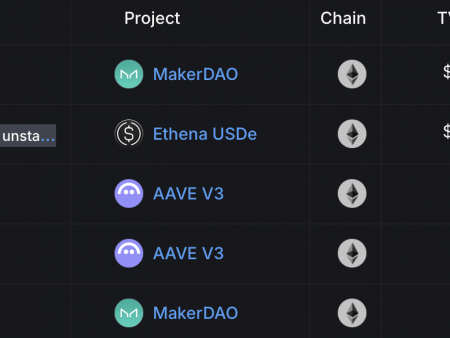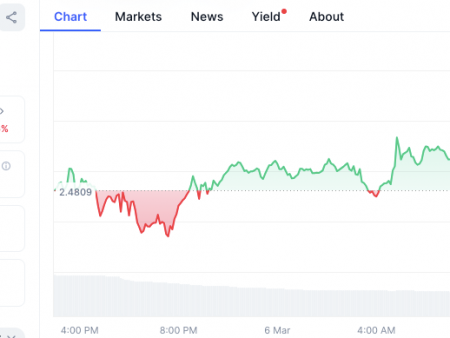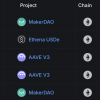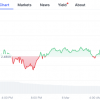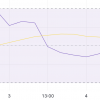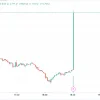
Breaking News: Turkish Crypto Boss Faces Historic 11,000-Year Sentence
In a stunning turn of events, Faruk Fatih Ozer, the former head of the now-defunct Thodex crypto exchange, has been handed an astonishing 11,196-year prison sentence by a Turkish court. This verdict, delivered late Thursday in Istanbul, marks a momentous chapter in the saga of Ozer’s downfall, as he and his two siblings were found guilty of a slew of charges including aggravated fraud, leading a criminal organization, and money laundering.
Ozer, once the mastermind behind Thodex’s meteoric rise, has fallen from grace. Despite his high-school dropout background, he founded Thodex in 2017 and gained notoriety in the crypto world. After the exchange’s dramatic collapse, he fled to Albania, only to be brought back to Turkey to face justice.
During his final hearing, Ozer exhibited an air of defiance, boldly asserting, “I am intelligent enough to helm any institution on Earth.” He cited Thodex as evidence of his abilities, emphasizing, “I wouldn’t have conducted myself so unprofessionally if this were truly a criminal operation.”
The extent of investors’ losses in the Thodex debacle remains uncertain. While the prosecutor’s indictment estimates losses at 356 million liras ($13 million), various Turkish media outlets have reported figures soaring as high as $2 billion. Shockingly, a comprehensive study conducted by Chainalysis places the value of lost cryptocurrency at an astonishing $2.6 billion.
Faruk Fatih Ozer’s extradition from Albania earlier this year culminated in this landmark sentence, serving as a stark reminder of the consequences faced by those who manipulate the world of cryptocurrencies for personal gain.
A cryptocurrency exchange is an online platform where you can buy, sell, or trade cryptocurrencies like Bitcoin, Ethereum, and others.
Safety varies by exchange. Look for platforms with strong security measures, like two-factor authentication and cold storage for funds.
Consider factors like security, fees, available coins, user interface, and customer support.
Centralized exchanges are managed by a company, while decentralized exchanges operate without a central authority.
Many exchanges require Know Your Customer (KYC) verification for security and regulatory compliance.
Trading fees vary but typically include maker fees (for adding liquidity) and taker fees (for removing liquidity).
Yes, most exchanges offer cryptocurrency-to-cryptocurrency trading pairs.
Withdrawal times depend on the exchange and the cryptocurrency. Some are instant, while others may take hours or even days.
A wallet address is like a bank account number for cryptocurrencies. It’s required to send your crypto to the right place.
Yes, depending on your country’s tax laws, trading cryptocurrencies may have tax consequences. Consult a tax professional for guidance.
Yes, many cryptocurrency exchanges operate 24/7, allowing you to trade at any time.
A market order buys or sells at the current market price, while a limit order sets a specific price at which you want to buy or sell.
Yes, each exchange sets its own minimum and maximum trading limits, which can vary widely.
It’s not recommended. For security, it’s better to use a cryptocurrency wallet, especially for significant holdings.
Exchanges typically have account recovery processes, including password reset options and support for forgotten usernames.
Some exchanges offer insurance, but coverage can be limited. It’s essential to check an exchange’s insurance policy.
Use strong passwords, enable two-factor authentication, and be cautious of phishing scams and suspicious emails.
Yes, but it’s recommended to learn the basics of trading and understand the risks involved before you start.
Stablecoins are cryptocurrencies pegged to the value of a fiat currency like the US dollar. They provide stability and are commonly used for trading and transferring funds on exchanges.
Yes, regulations vary by country. Many countries have implemented or are considering regulations to govern cryptocurrency exchanges for consumer protection and financial stability.
